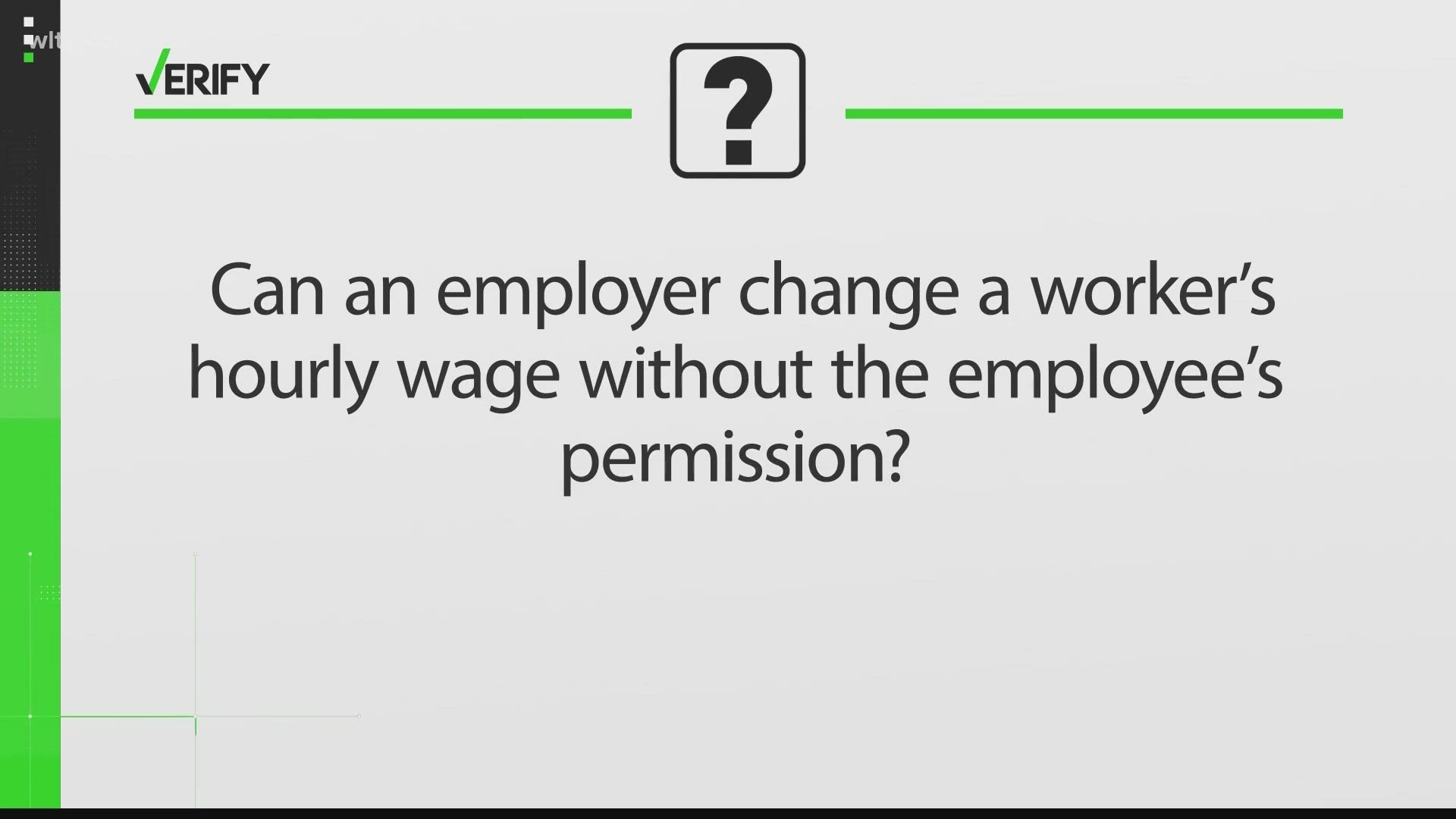NEW YORK — Higher minimum wages will go into effect on January 1 across 22 states, giving an economic boost to almost 10 million workers, according to a recent estimate.
The higher baseline wages will deliver almost $7 billion in additional annual wages to about 9.9 million workers, the left-leaning Economic Policy Institute said in a research post on December 21. The increases will boost the baseline pay to at least $16 an hour in three states: California, New York and Washington.
On top of the state pay hikes, an additional 38 cities and counties will also increase their minimum wages, the group said.
The higher minimum wages are coming at a time when workers are struggling with higher costs due to inflation, which is easing after hitting a 40-year high in 2022. Twelve of the states raising their wages peg their baseline pay to inflation, resulting in an annual adjustment that keeps workers from losing purchasing power when prices rise.
Even so, the federal minimum wage hasn't budged since 2009, remaining at $7.25 an hour, even though inflation has jumped more than 40% since then.
"Despite continued progress by many states across the country to increase their wage floors, there are still 17.6 million workers earning less than $15 an hour," wrote EPI research assistant Sebastian Martinez Hickey in a blog post. "Almost half of workers (47.8%) earning less than $15 an hour are in one of the 20 states that still uses the federal minimum wage of $7.25 an hour."
Three additional states will increase their minimum wages later in 2024: Florida, Nevada and Oregon. New baseline wage rates in Nevada and Oregon will go into effect on July 1, while Florida's minimum wage will increase on September 30.
Who is getting a pay hike?
The pay hikes will disproportionately lift wages for women and people of color, the EPI estimated.
About 6 in 10 of the workers who will benefit from the higher mandated pay are women. While hispanic workers constitute about 20% of workers in states that are boosting baseline wages, they represent nearly 40% of those who will be impacted by the minimum wage hikes, the group said. Likewise, about 11% of workers to be affected are Black, though they make up about 9% of the workforce in these 22 states.
"Minimum wage increases are also vital to many workers who are more vulnerable to exploitation, whether it's because of immigration status, disability, or place of work," Martinez Hickey wrote.
Federal minimum wage
Even though many employers have already lifted their entry-level wages to keep competitive amid a tight labor market, higher baseline wages are still important because they lock in wage gains for workers, the EPI noted.
"While the federal minimum wage falls further and further behind the cost of living at just $7.25 an hour, state increases are vital for workers, businesses and communities," said Holly Sklar, CEO of Business for a Fair Minimum Wage, in a statement.
With the January 1 state wage hikes, workers in six states — California, Connecticut, Maryland, New Jersey, New York and Washington — will be guaranteed baseline pay that's more than twice that of the federal minimum wage.
The 20 states where the baseline wage will remain at $7.25 an hour are primarily located in the South and Midwest, from Alabama to Wisconsin.
States raising the minimum wage in 2024
Here are the states that are boosting their minimum wage on Jan. 1 2024, along with the new baseline pay that will be taking effect.
- Alaska: $11.73
- Arizona: $14.35
- California: $16
- Colorado: $14.42
- Connecticut: $15.69
- Delaware: $13.25
- Hawaii: $14
- Illinois: $14
- Maine: $14.15
- Maryland: $15
- Michigan: $10.33
- Minnesota: $10.85
- Missouri: $12.30
- Montana: $10.30
- Nebraska: $12
- New Jersey: $15.13
- New York: $16
- Ohio: $10.45
- Rhode Island: $14
- South Dakota: $11.20
- Vermont: $13.67
- Washington: $16.28
Nevada's and Oregon's new minimum wages which go into effect on July 1, will be set at $12 an hour and $14.20 plus an inflation adjustment, respectively. Florida will increase its minimum wage to $13 an hour on September 30.
Cities and counties raising their minimum wages
Some cities and counties next year will also boost their minimum wages, bringing their lowest pay levels above the statewide baseline.
Denver, for instance, will increase the city's minimum wage to $18.29 an hour on January 1, topping Colorado's rate of $14.42 an hour.
Below are the 38 cities and counties where workers will get a minimum wage increase on January 1, along with the new 2024 state minimum, according to EPI.
- Flagstaff, Arizona: $17.20
- Belmont, California: $17.35
- Burlingame, California: $17.03
- Cupertino, California: $17.75
- Daly City, California: $16.62
- East Palo Alto, California: $17.10
- El Cerrito, California: $17.92
- Foster City, California: $17
- Half Moon Bay, California: $17.01
- Hayward, California: $16.90
- Los Altos, California: $17.75
- Menlo Park, California: $16.70
- Mountain View, California: $18.75
- Novato, California: $16.86
- Oakland, California: $16.50
- Palo Alto, California: $17.80
- Petaluma, California: $17.45
- Redwood City, California: $17.70
- Richmond, California: $17.20
- San Carlos, California: $16.87
- San Diego, California: $16.85
- San Jose, California: $17.55
- San Mateo, California: $17.06
- Santa Clara, California: $17.75
- Santa Rosa, California: $17.45
- Sonoma, California: $17.60
- South San Francisco, California: $17.25
- Sunnyvale, California: $18.55
- Boulder County, Colorado: $15.69
- Denver, Colorado: $18.29
- Edgewater, Colorado: $15.02
- Portland, Maine: $15
- Minneapolis, Minnesota: $15.57
- St. Paul, Minnesota: $15.57
- Las Cruces, New Mexico: $12.36
- SeaTac, Washington: $19.71
- Seattle, Washington: $19.97
- Tukwila, Washington: $20.29

